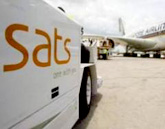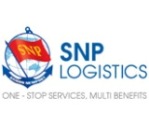Changi Airport ground handler Singapore Airport Terminal Services (SATS) reported a more than 25 per cent drop in net profit due to rising costs, loss from the disposal of its UK-based food business, falling contribution from joint ventures and associates, and a weaker US dollar.
Net profit fell 25.4 percent to US$30.75 million for the third quarter from $41.22 million a year earlier while revenue grew 32.3 per cent to $356.06 million from $269.12 million said SATS in a statement, reported Business Times Singapore.
During the quarter, SATS recognised a loss of $4.43 million on the disposal of UK-based Daniels. Food solutions revenue rose 49.4 per cent to $229.67 million, due mainly to the consolidation of Tokyo Flight Kitchen (TFK) which contributed $66 million to its revenue. Excluding TFK, food solutions revenue improved 6.5 per cent, led by more airline meals served during the quarter. Excluding TFK's expenditure of $80.5 million, group expenditure rose at a lower rate of 9.2 per cent to $318 million, attributed to higher staff, raw material and utilities costs.
In October 2011, SATS announced the disposal of Daniels Group in the UK. The loss on disposal of Daniels was $4.43 million. After adjusting for Daniels' results and one-off M&A expenses for TFK acquisition incurred in Q3 FY11, SATS' underlying net profit from continuing operations was $35.18 million. A combination of weaker cargo volumes by associates (led by Hong Kong) saw SATS' share of profits of associates and JVs fall 15.7 per cent to $10.38 million.
For the nine months ended December 2011, SATS posted net profit of $97.25 million, down 14.1 per cent from $113.27 million a year earlier.
During the third quarter, SATS saw the number of flights handled and unit services grow 13.3 per cent and 10.5 per cent respectively year-on-year, underpinned by the seasonally high travel season from October to December 2011. Gross meals increased by 4.1 per cent and unit meals by three per cent, in line with the higher passenger traffic recorded during the quarter, while cargo throughput went up slightly by 1.6 per cent.
The company is cautious about the final quarter citing the seasonally low travel period between January and March.
Cargonews Asia













